 We first met Paris Demario Thomas, a member of The Church of Jesus Christ of Latter-day Saints, a little more than a decade ago when he was featured in a YouTube video as part of the Church’s “I AM A Mormon” campaign. Since then, through the help of a good friend, he was able to attend a private school, has served an honorable two-year mission for the Church in the British Isles, and served for four years in the United States Navy (May 2015 – April 2019) in Guantanamo Bay, Cuba, working in Human Resources and obtaining the rank of Petty Officer Second Class. Petty Officer Second Class is the fifth enlisted rank in the United States Navy and is a non-commissioned officer equivalent to sergeant in the Army and Marine Corps, and staff sergeant in the Air Force.
We first met Paris Demario Thomas, a member of The Church of Jesus Christ of Latter-day Saints, a little more than a decade ago when he was featured in a YouTube video as part of the Church’s “I AM A Mormon” campaign. Since then, through the help of a good friend, he was able to attend a private school, has served an honorable two-year mission for the Church in the British Isles, and served for four years in the United States Navy (May 2015 – April 2019) in Guantanamo Bay, Cuba, working in Human Resources and obtaining the rank of Petty Officer Second Class. Petty Officer Second Class is the fifth enlisted rank in the United States Navy and is a non-commissioned officer equivalent to sergeant in the Army and Marine Corps, and staff sergeant in the Air Force.
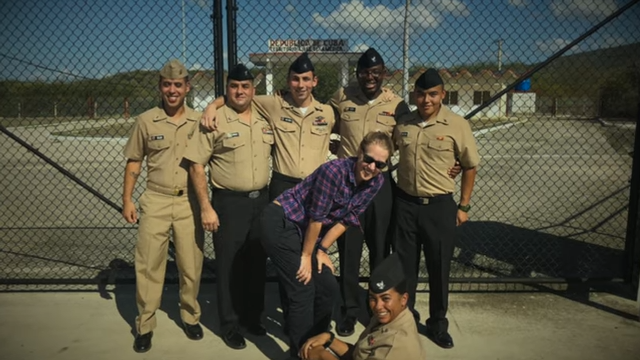 According to his LinkedIn profile, he “enlisted in support of Operation Enduring Freedom, and Caribbean Human Relations (HR) and operations onboard an isolated overseas Naval Hospital.” He also served for a short time in the Naval Reserves (June 2019 – July 2021) at the Naval Operations Support Center (NOSC) in Columbus, Georgia, where he was cross assigned to the Naval Reserve (NR) United States Fleet Forces (USFF) Command Public Affairs.
According to his LinkedIn profile, he “enlisted in support of Operation Enduring Freedom, and Caribbean Human Relations (HR) and operations onboard an isolated overseas Naval Hospital.” He also served for a short time in the Naval Reserves (June 2019 – July 2021) at the Naval Operations Support Center (NOSC) in Columbus, Georgia, where he was cross assigned to the Naval Reserve (NR) United States Fleet Forces (USFF) Command Public Affairs.
Paris is not a stranger to hard times. He was born in Atlanta, Georgia, but grew up in the place that he still refers to as his beloved home — Tuskegee, Alabama — a predominantly Black community where one-third of the population lives at or below the poverty line. He grew up hearing the familiar sounds of gunshots — just outside the projects where he lived and played. Amidst those sounds was a yet calmer sound — the sound of his mother’s sweet southern voice reading Bible verses. He told BYU Magazine, “Whenever she would read to us the scriptures—stories about Elijah, David and Goliath, and Jesus—we always had peace in our home.”
 Gang violence claimed the lives of both of his brothers. His brother, Sheldon, was killed when Paris was only four years old. At the age of six, his father was incarcerated and never returned, and at age eight, his closest brother, Jeremiah, was shot and killed, with his body being found in their grandmother’s back yard. By the age of 14, Paris had become a high school dropout.
Gang violence claimed the lives of both of his brothers. His brother, Sheldon, was killed when Paris was only four years old. At the age of six, his father was incarcerated and never returned, and at age eight, his closest brother, Jeremiah, was shot and killed, with his body being found in their grandmother’s back yard. By the age of 14, Paris had become a high school dropout.
Paris, his mother, Melinda, and his sisters soon found themselves homeless with nothing more than the clothes on their backs, an old car, and each other. His mother did whatever she could to provide food for them and was eventually able to find a job and they were able to get a home.
Feeling a calling to do something, Paris returned to Tuskegee, where for the past few years the 28-year-old volunteered and served his hometown community. He even ran for county commissioner.
The calling on his life has landed him at Brigham Young University (BYU), where this fall he joined the Law School’s incoming class as one of the inaugural recipients of the Achievement Fellowship, given to students who have overcome significant hardship in their life. Law School dean, D. Gordon Smith, says that when he heard Paris’ story it left him “slack-jawed.”
Hunger, Homelessness, and Despair — Hope Springs Eternal
To say that Paris Thomas’ life journey has been one replete with challenges is a definite understatement. It’s a journey that wends through homelessness and hunger pangs to a pivotal moment: a 14-year-old high-school dropout cracking the door for two young men in white shirts and ties. He told BYU Magazine, “I had no idea how that one experience would change everything.”
 Paris recalls that for the better part of his childhood, he did not know the meaning of “disparity.” He said, “I just thought everybody lived like that. I never felt like I was missing out, you know?”
Paris recalls that for the better part of his childhood, he did not know the meaning of “disparity.” He said, “I just thought everybody lived like that. I never felt like I was missing out, you know?”
He recalls the days when he “ate like a king,” enjoying the mouthwatering ribs prepared by his mother and his personal favorite, banana pudding. But things changed after losing his father and brothers. He recalls that there were days when he and his sisters ate cornflakes with water or mayonnaise sandwiches. He said, “We’d live off a bag of Cheetos for a couple days, stuff like that.”
When all hope seemed to be lost, Paris’ mother, Melinda, drove her children to New Jersey, hoping to stay with family there. Unfortunately, the prospect did not pan out, and their ‘80s Mitsubishi became their home. He remembers that one cold Jersey night that they spent living in the car, his hands became frozen and numb. Nevertheless, through it all, his mother never made her little family feel as though they were not blessed. She said, “I put God in my life and around us.”
The family witnessed the hand of God at work in their lives as they were blessed with gas money, clothes and shoes from different churches, and a diner owner, who after seeing the kids, hired Melinda on the spot. Eventually, they were able to live in a YMCA shelter and meet new friends. Paris said that the shelter was “basically a gymnasium they would let you use at night with rows of cots.” They had to be out by 7 a.m. each day. It was there that Paris met a shelter volunteer who secured him a scholarship to attend sixth grade at her son’s private school.
Paris was the only Black kid in his grade at the school, but no one treated him differently. He took advantage of the opportunities before him and flourished academically. He commented, “That’s when I really first saw that there were differences. Some people [actually] live good. It was kind of mind-blowing.” He had been introduced to a new type of hunger. He said, “That kind of hunger, it teaches you. . .. to stay hungry. To always strive to do and be more.”
Return to Tuskegee — Trouble Comes Knocking
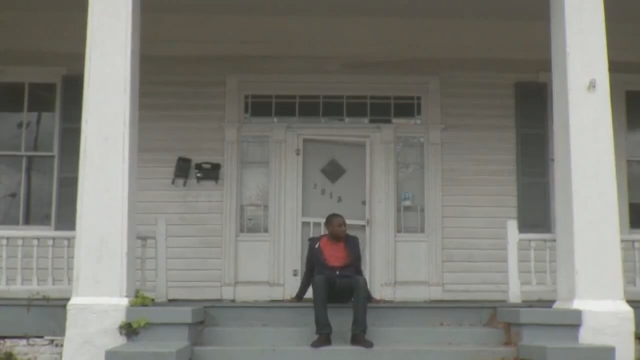 One year later Paris, his mom, and sisters moved back to Tuskegee, near family. The same forces that had influenced his brothers eventually reared their ugly heads again — this time in search of Paris.
One year later Paris, his mom, and sisters moved back to Tuskegee, near family. The same forces that had influenced his brothers eventually reared their ugly heads again — this time in search of Paris.
At the age of 12, someone asked him if he wanted to join a gang with “no strings attached.” He was told, “You wouldn’t even have to get jumped in or go through initiation” — the hazing process in which new members are beaten and required to commit a crime. Paris admits that the temptation to accept the offer was great as it would afford him and his family many things that they had never had. Many of his friends started selling drugs and joining drive-by shootings, with the gang fights extending to school grounds. After walking into the school bathroom and seeing his friends beating up a kid, he made his decision — to avoid the gang. It was also then that he made the decision, at the age of 14, to drop out of school.
A New Door Opens
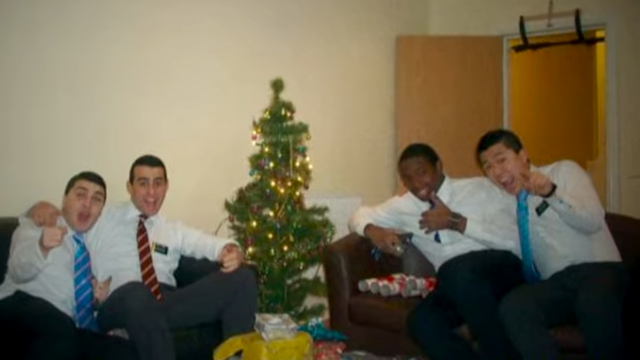 Enter the missionaries from The Church of Jesus Christ of Latter-day Saints. Paris recalls, “I tried to slam the door, but when my mom saw the badge said ‘Jesus,’ she let them in.” The missionaries left a Book of Mormon. Melinda said, “I was reading it, but I wasn’t reading it like Paris!” Being the bibliophile that he is, Paris read the volume in its entirety. He stated, “It gave me that same peaceful feeling I had all those years ago, when my mom would read the Bible. I knew it was true because it brought those same emotions.”
Enter the missionaries from The Church of Jesus Christ of Latter-day Saints. Paris recalls, “I tried to slam the door, but when my mom saw the badge said ‘Jesus,’ she let them in.” The missionaries left a Book of Mormon. Melinda said, “I was reading it, but I wasn’t reading it like Paris!” Being the bibliophile that he is, Paris read the volume in its entirety. He stated, “It gave me that same peaceful feeling I had all those years ago, when my mom would read the Bible. I knew it was true because it brought those same emotions.”
Paris was the first in his family to be baptized. His mother and sisters followed soon after. In short order, he suited up and joined forces with the missionaries.
Chase Rigby, a new missionary who was assigned Tuskegee as his first area, told Paris, “Well, if you’re not going to school, you’re coming with us.” Every morning after his studies with his companion, they drove over to Paris’ house and picked him up. The connection between Rigby and Paris was “electric.” Rigby would beatbox classics and freestyle with Paris as they walked.
Rigby recalls that Paris had an enormous thirst for learning. He said, “He [Paris] crushed every publication in the Tuskegee ward’s materials center.” He remembers that Paris finished reading the book Jesus the Christ by James E. Talmage in two weeks.
The missionaries helped Paris find a job, delivering late-night sandwiches to Tuskegee University. They also got him GED workbooks. And they taught him to ride a bike. When Paris passed the GED, the elders were ecstatic. Rigby said, “I felt like my little brother got into Stanford!” Then Rigby had an incredible idea.
Letting Go of Fears to Pursue a Dream
Rigby wrote his parents, Blake and Michelle Thueson Rigby. In the letter, he told them that the amazing person, Paris, whom he had written so much about, needed to continue his education. He wanted to know if his parents would allow Paris to come live with their family in Salt Lake City, Utah, and attend LDS Business College (LDSBC), which is now known as Ensign College, where he would be among fellow believers. He explained that if Paris remained in Tuskegee, his best options to further his education were an hour away from where he lived, and Paris did not have a car or a driver’s license.
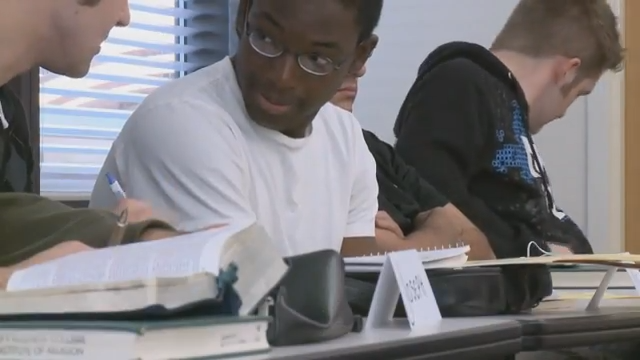 At first Rigby’s parents were hesitant, having just recently become empty nesters. However, after calling the mission president and receiving a rave report about Paris — they had a change of heart. Rigby worked every angle possible to convince Paris, who at the time was 16 years old, and his mother, that Paris being able to continue his education in Utah was a great opportunity. Paris’ mother said, “I didn’t want to let him go; he was my baby, but the Spirit was talking to me. . .. I trusted he was going to have more opportunity there than I could give him.”
At first Rigby’s parents were hesitant, having just recently become empty nesters. However, after calling the mission president and receiving a rave report about Paris — they had a change of heart. Rigby worked every angle possible to convince Paris, who at the time was 16 years old, and his mother, that Paris being able to continue his education in Utah was a great opportunity. Paris’ mother said, “I didn’t want to let him go; he was my baby, but the Spirit was talking to me. . .. I trusted he was going to have more opportunity there than I could give him.”
Paris settled right into Rigby’s room, his clothes, and even his circle of friends, who, despite economic differences, reminded him of friends back home. He stated, “Another guy might have six or seven bedrooms in his house, but he’s just like so-and-so I know in Tuskegee. I realized people are essentially the same no matter what color, where you come from, whether you’re homeless in Tuskegee or well-to-do in Salt Lake City—we’re all the same.”
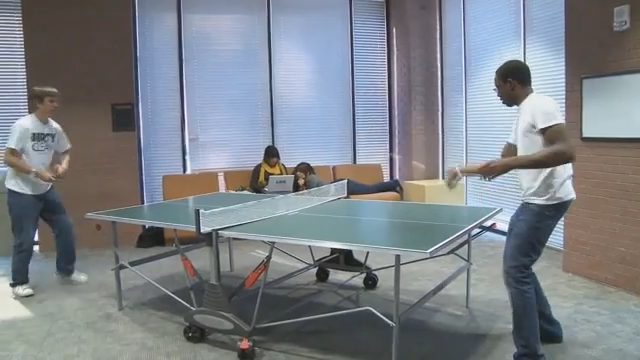 Being the approachable person that he is, Paris was always off with friends or playing Ping Pong. His inability to say no, once landed him in the predicament of having three dates to the same girls-ask-guys dance. The entire community rallied around him and taught him how to drive and helped him prepare to serve a full-time mission for the Church in England.
Being the approachable person that he is, Paris was always off with friends or playing Ping Pong. His inability to say no, once landed him in the predicament of having three dates to the same girls-ask-guys dance. The entire community rallied around him and taught him how to drive and helped him prepare to serve a full-time mission for the Church in England.
After returning home from his mission, he eventually enlisted in the United States Navy and got his top pick of posts: Guantanamo Bay, Cuba. He said, “I’m the first person in history to [pick] that, I’m sure.” He was inspired by an officer he admired who had spoken of how the hardships of that station had refined him. He said, “I thought, ‘I like hard things, I want to be better, and I want to be like him. I’m sold.’” During the three years that he served in Guantanamo Bay, he shined.
Soren G. Farmer, who served as a naval aviator and branch president for the Church branch in Guantanamo Bay commented, “Our branch was a close-knit family, and Paris was an integral part of that. He made new family everywhere he went.” That new family included Filipino and Jamaican civilians who worked on the base, plus the Cuban residents at a community center for the elderly, where Paris volunteered. Farmer continued, “Every other week he brought a new friend to church.” He estimates Paris gave 50 or more talks, testimonies, and Family Home Evening (FHE) lessons, not to mention his regular lessons as Sunday School president.
While stationed at Guantanamo Bay, Paris completed legal clerk training. He was impressed with how the military lawyers worked so hard for the prisoners at Guantanamo Bay and for the Cuban migrants stranded there since the Cuban missile crisis.
While he was on his mission, he had received strong impressions that he should pursue a law career, and those same impressions were beginning to return. He commented, “I’d always brushed it off. . .. Law? . . .. You come from Tuskegee. You’ve been homeless. That’s impossible.”
One night he asked himself the question, “What would you do if you weren’t afraid?” At the end of his four-year enlistment, he answered the question.
Looking to the Future and Beyond
The next step to law school: finishing his sociology degree through the American Military University, which Paris did remotely back in Tuskegee.
While he was at home, a family medical emergency occurred. His mother, on dialysis after kidney failure, had a wrong-site needle entry. Bleeding profusely, she needed emergency transport. But Tuskegee does not have an ambulance service. Paris said, “We had to call one from a city over, and it took, like, 30 minutes. All that time she was bleeding out.” He continued, “That’s when I thought, ‘Okay, I can’t sit back anymore.’”
Paris decided to dig into local government, attending meetings, diving deep into the challenges in his vulnerable community. Troubled by tax incentives chasing business away, the lack of published budgets, and the misappropriation of funds, he launched a campaign for county commissioner. He figured that if he won, law school could wait. He didn’t win, but his friend, Anthony Lee, said that Paris forced the race into a runoff. The incumbent ultimately lost. Paris considered it a victory.
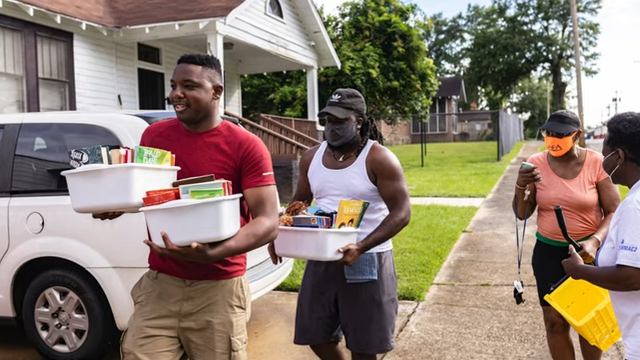 Anthony Lee was one of the first students to desegregate schools in Alabama—the namesake of the landmark Lee v. Macon County Board of Education. He wrote one of the recommendation letters for Paris’ application to the BYU Law School. In that letter, he wrote in part, “I see someone young, willing, thoughtful, intelligent. Someone who is serving veterans, volunteering with teens in foster care. . .. Him with a law degree? That’s powerful. We need young people like that here. . .. Now don’t you keep him!”
Anthony Lee was one of the first students to desegregate schools in Alabama—the namesake of the landmark Lee v. Macon County Board of Education. He wrote one of the recommendation letters for Paris’ application to the BYU Law School. In that letter, he wrote in part, “I see someone young, willing, thoughtful, intelligent. Someone who is serving veterans, volunteering with teens in foster care. . .. Him with a law degree? That’s powerful. We need young people like that here. . .. Now don’t you keep him!”
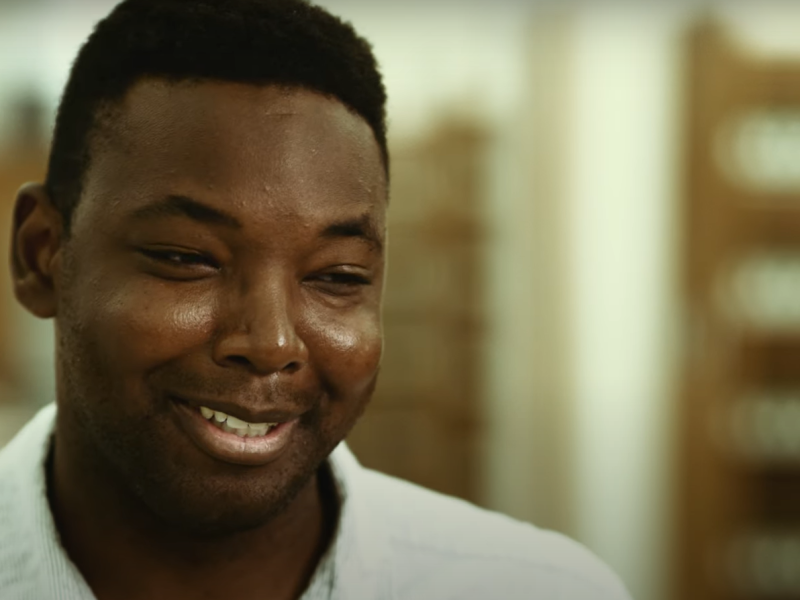 Paris does have his personal reservations about attending BYU Law School. However, D. Gordon Smith, the dean of the school, exclaims that the reservations that Paris has will be his gift. Smith said, “It’s hard to understand how laws affect the various people subject to them if those people aren’t present and able to say, ‘Hey, this is my experience, and this is how I look at this [particular] problem.” He added that attorneys of color “are more interested in serving the whole.”
Paris does have his personal reservations about attending BYU Law School. However, D. Gordon Smith, the dean of the school, exclaims that the reservations that Paris has will be his gift. Smith said, “It’s hard to understand how laws affect the various people subject to them if those people aren’t present and able to say, ‘Hey, this is my experience, and this is how I look at this [particular] problem.” He added that attorneys of color “are more interested in serving the whole.”
Paris sums up his thoughts and feelings by saying, “When I see a young man who’s involved in gangs, I don’t see a thug. I see [my brother] Jeremiah. When I see a homeless person, I see the people I was with every day in those shelters, slept next to. I see myself. Our universal heritage as people is suffering, and we should try to alleviate that for each other, in whatever form that is.”






